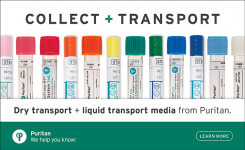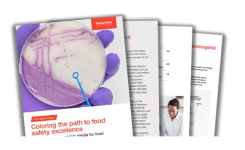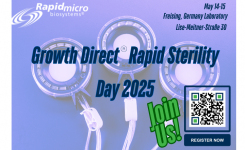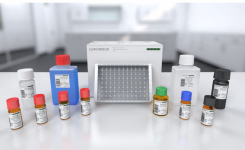New SeptiCARD Data Demonstrating Rapid Septicemia Diagnosis
go back to news archives| Rheonix, Inc. has announced positive results in a new application of its powerful, automated, molecular diagnostic platform, termed SeptiCARD, for the detection of septicemia, the presence of bacteria in the blood often associated with severe infection. Results were presented in a poster session at the American Association for Clinical Chemistry (AACC) Annual Meeting. These data continue to support the Rheonix CARD® system's utility across a range of molecular diagnostic applications. 'The results presented at AACC continue to raise the standard for speed and accuracy of diagnostic results straight from raw samples, such as whole blood,' said Tony Eisenhut, President of Rheonix, Inc. 'The SeptiCARD is another important application of our versatile platform, and these data confirm results we have seen in our other development programs for immunoassay, pathogen identification, gene sequence detection, cell based assays and diverse molecular diagnostic applications. We look forward to submitting our first product, a warfarin sensitivity test, for FDA review by the end of the year.' The current standard of care to detect bloodstream infections relies on time consuming blood culture methods. The Rheonix SeptiCARD, however, is able to take a whole blood sample and complete an accurate detection of bacteria in the blood, or septicemia, in less than three hours on a fully automated and closed system. This time saving is important, as mortality rates for patients with sepsis increase by approximately 8% for every hour of delay in diagnosis. The SeptiCARD utilizes a novel, dual-stage nucleic acid purification procedure designed to conduct multiplexed microbial detection for sepsis diagnosis. The SeptiCARD is placed into the Rheonix EncompassMDx™ workstation, which can simultaneously run six Rheonix CARD devices, allowing up to 12 individual samples to be automatically analyzed within a three-hour period. All steps of cell lysis, dual-stage DNA purification, multiplex PCR and endpoint detection are enclosed and fully contained within the SeptiCARD, allowing for fully-automated detection and reduced risk of cross-contamination. The SeptiCARD product is still in research phase and not yet FDA cleared for in vitro diagnostic use. Study results presented at AACC were in a poster titled 'Two-step DNA isolation followed by PCR in a fully automated system to detect septicemia agents in whole blood,' Rheonix reported positive results for the rapid and accurate identification of septicemia agents using the Rheonix SeptiCARD device. The study analyzed 500 mcl of whole blood, spiked with 50 to 500 C. albicans cells, a septicemia pathogen, on the Rheonix SeptiCARD. The device performed a two-step DNA isolation, which yielded DNA of a superior quality to traditional isolation methods, and allowed for improved amplification of target sequences. There were no differences in detection between low or high amounts of C. albicans, indicating that the Rheonix platform is capable of detecting small amounts of pathogen that are present before severe disease results. Rheonix reported that the detection of other septicemia agents generated similar results. |
NOTE: This item is from our 'historic' database and
may contain information which is not up to date.
Source : Rheonix View Company Information
Posted on August 9, 2011
















